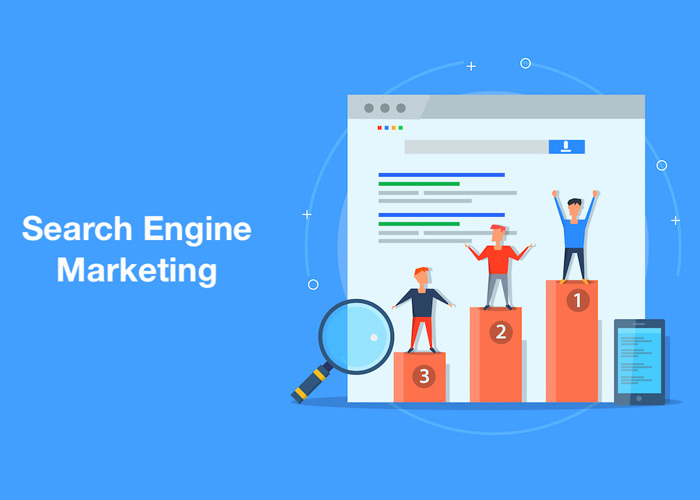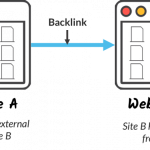Over the past few years, online or internet marketing has gained an unprecedented popularity. Loosely speaking, making a website for a business is more like making a banner for a shop which needs to be placed conspicuously so that most of the people could see and know about the shop. Businesses require websites capable of generating more leads and, consequently, more revenue. They are in need of digital marketing. So, Search engine marketing becomes vital.
What Is Search Engine Marketing?
Search marketing or Search Engine marketing is the process of gaining traffic and visibility from search engines through both paid and unpaid efforts.
Search engine marketing is about promoting a website by enhancing its presence in search engine results pages (SERPs). Nowadays you cannot simply develop a website with ill-organized and outdated content. It would hardly be of any use.
Can your business be easily found on the internet? If not, you need to spend some time reforming or rewriting the content of your website and making it more relevant in terms of search engines. It is inevitable in a highly competitive environment where you have to do the best in order to be on the top in SERPs.
SEM is an acronym for search engine marketing, which involves tasks that help search engines such as Google, Yahoo!, and Bing find and rank a website.
In other words, it’s the things you can do to make sure your website appears in search engine results when someone searches for information related to your business.
The Difference Between SEO and SEM
Search Marketing encompasses:
- SEO: Earning traffic through unpaid or free listings
- SEM: Buying traffic through paid search listings
Originally called “search engine marketing,” the shorter phrase “search marketing” is now often used as the umbrella term over SEO and SEM. The longer phrase “search engine marketing” — or SEM — is now typically used to describe paid search activities.
Search Engine Optimization (SEO) refers to the process by which search engines “crawl” content to see how effective it will be to attract traffic. Search engines will assess a number of things in a website (such as keywords, tags, and link titles) and rank it for its capacity to attract organic traffic based on a variety of factors. SEO ranking is a very important factor for your business.
Search Engine Marketing (SEM) is a descriptor that incorporates various types of paid search advertising. This is the type of thing that you’ll see as Google ad and usually ends up on the top of a page list. Usually, this has a to do with keyword placement and usage and that’s one way why doing it well can require some extra knowledge and strategy.
Which is better? SEO or Search Engine Marketing ?
Many people know which search results are paid versus natural and often give precedence to natural search options. On the other hand, if your website shows up on later pages of the search results, you might have better luck using PPC to get seen.
Because PPC costs money, you might consider using it for items that you sell, as opposed to promoting a free offer or your blog. With that said, many people have successfully used PPC marketing to promote a free lead magnet.
Regardless of whether you use PPC or not, you should employ SEO tactics, because it’s free and it does work.
Also Read:
SEO Problems: Try SEO training to solve common technical issues
Examples of SEM-based advertising:
- Targeted (paid) ad campaigns
- Writing copy using very selective keywords
- Ensuring that advertising activities fall within an allotted budget
- Applying key performance indicators like click-through-rates (CTR) and cost-per-click (CPC) towards future advertising activities
Search Engine Marketing for Brands
SEM is great for brand recognition as it means that you’ll be at the top of the list every time someone searches. It’s also a great way to bring in targeted traffic to your website. And because it has to do with paid ads, it’s easy to understand your ROI in a direct way – you are using paid ads and will be able to monitor the traffic on those and then create campaigns based on this information.

Key concepts of SEM or search engine marketing
1. Understanding search engines
Search engines play a pivotal role in making an online business successful. Specially for small businesses and startups. Therefore, you have to develop an understanding how search engines rank a website. Online marketers also have to consider the fact that search engines continuously change their trends. One thing work today does not necessarily work tomorrow. So it is important to follow the trends and make changes accordingly.
2. Keyword selection for SEM
The incorporation of keywords is an important concept when it comes to optimizing a website. It is also called content optimization. A keyword is something we type in the search box in order to access desired information.
If your website is not fully optimized for keywords, you will probably lose the race. So you have to try keyword research. Further, you have to understand what phrases your customers are typing in search boxes while looking for the products and services that you offer.
3. Selection of a URL for Search engines
Be careful while creating a URL. Search engine friendly URL’s are of great help in the process of optimizing a website. Include words in a URL which best represents your products and services, especially when you are running an online store and your business is largely depends on the website.
4. Organic results and Pay-per-click (PPC)
Pay-per-click and organic search results are the two ways you can effectively use to put your online presence in a decent position. PPC allows you to pay search engines for displaying your ads. On the other hand, organic results are to influence the way search engines rank websites.
Also Read:
Content Marketing and PPC Advertising to Increase Website Traffic
5. Backlinks in your website
Back-links play a crucial role in improving the repute of your website. It is when other websites endorse your website. However, it is important that your website gets endorsements from reputable websites. Search engines pay close attention to quality backlinks. Therefore, make sure that you have quality content on your website.
Marketing as a Home Business
If you master SEM techniques, there are other businesses that will pay you to help them. Running a search engine marketing service can be a lucrative home business.
The key to getting started is to be able to show proof of your results, including organic search ranking for keywords, as well as income or other results from paid search.
How does Search Engine Marketing work ?
Look at your short- and long-term goals to choose whether to focus on organic or paid search (or both). It takes time to improve your organic search rankings, but you can launch a paid search campaign tomorrow.
Before you can optimize your site or launch a paid campaign, generate a list of keywords – terms your prospects use when looking for information you can deliver.
Optimize your website!
Search engines reward you when sites link to yours – they assume that your site must be valuable and you’ll rank higher in search results. And the higher the “rank” of the sites that link to you, the more they count in your own ranking.
What can improve your search results ?
- Utilizing newest social media platforms
- Creating RSS feeds to distribute updated content from your site to other websites
- Blogging
- Distributing search-optimized press releases on the web
After Learning SEM
Focus on converting your new prospects to customers, then keep the cycle going. Continue learning to keep optimizing your website and SEM campaigns.











